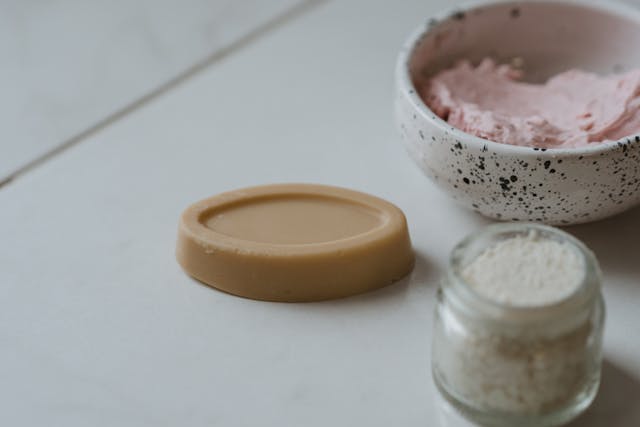In recent years, the popularity of CBD (cannabidiol) products has skyrocketed, with CBD topicals emerging as a favored category for many seeking relief from pain and improvement in skin health. For those new to the concept, understanding how CBD topicals work can be key to integrating them effectively into your wellness and skincare regimen. This guide will delve into what CBD topicals are, explore the science behind their interaction with the body, and discuss their potential benefits for various skin conditions and pain relief.
Table of Contents
What are CBD Topicals?
CBD topicals are lotions, creams, balms, and salves infused with cannabidiol, a compound derived from the cannabis plant. Unlike THC (tetrahydrocannabinol), the most well-known cannabinoid known for its psychoactive properties, CBD is non-intoxicating. This means that CBD topicals can provide therapeutic benefits without producing a “high.” These products are specifically formulated for direct application to the skin, making them ideal for targeting localized areas of discomfort. They are popularly used to alleviate localized pain, reduce inflammation, and serve as aids in skin care, potentially helping to treat conditions such as acne, eczema, and psoriasis.
Also read: Nature’s Remedy: CBD-Enriched Hemp Flower
For those interested in exploring the variety of CBD topical products available, visiting WebCBD offers a comprehensive selection tailored to meet diverse needs and preferences.
The Science Behind CBD
Cannabidiol is one of over a hundred cannabinoids found in the cannabis plant. CBD primarily interacts with the body’s endocannabinoid system (ECS), a complex network of cannabinoid receptors, endocannabinoids (molecules that our bodies naturally produce that are similar to cannabinoids), and enzymes. The ECS is crucial for maintaining various physiological processes, including pain sensation, immune response, inflammation, and mood.
Also read: Factors To Consider When Selecting CBD Vape Oil Flavors
There are two main types of cannabinoid receptors in the ECS – CB1 and CB2. CB1 receptors are mostly found in the brain and central nervous system, while CB2 receptors are more commonly found in peripheral organs, especially cells associated with the immune system. Interestingly, while THC binds directly to these receptors (particularly CB1), CBD does not bind directly to either receptor. Instead, CBD works indirectly by enhancing the levels of endocannabinoids in the body, inhibiting the enzymes that break them down.
How Do CBD Topicals Work?
When applied to the skin, CBD topicals do not enter the bloodstream. Instead, they interact with cannabinoid receptors through the skin’s surface. Here’s how it happens:
Also read: Beyond Brownies: Creative Cannabis Edibles Recipes You Haven’t Tried
- Application: Once applied, the CBD compounds are absorbed into the skin’s epidermal and dermal layers, reaching the cannabinoid receptors located there.
- Interaction with ECS: CBD enhances the body’s natural levels of endocannabinoids by inhibiting the enzymes responsible for their breakdown. This interaction helps modulate pain and inflammatory responses in the area of application.
- Localized relief: Because CBD topicals work locally, rather than systemically, they can target specific areas of discomfort. This makes them ideal for treating localized pain or specific skin issues.
Also read: THC Products You Can Serve At Your Pool Party
Benefits of CBD Topicals for Skin Conditions
CBD’s anti-inflammatory properties are central to its effectiveness in skin care and treating various skin conditions. Inflammation is a common symptom of many skin ailments, including psoriasis, eczema, and acne. By reducing inflammation, CBD can help alleviate some of the discomfort associated with these conditions. Additionally, CBD has been shown to have antibacterial properties, which can help reduce skin infections.
Acne
For acne, CBD oil can reduce the production of sebum. Sebum is the natural oil produced by the skin, which can lead to blocked pores and outbreaks. The anti-inflammatory effects of CBD can also reduce the redness and swelling that comes with acne.
Eczema and Psoriasis
Eczema and psoriasis are characterized by dry, itchy, and red skin. CBD’s ability to modulate the immune response makes it a promising treatment for these inflammatory skin conditions. By reducing inflammation and soothing the skin, CBD can help lessen the severity of symptoms.
Safety and Side Effects
CBD is generally considered safe. However, like any other product applied to the skin, CBD topicals could cause reactions in some people. It’s always best to perform a patch test before fully incorporating any new product into your routine. Additionally, while CBD interacts with the ECS to reduce pain and inflammation, its effects may vary from person to person.
Conclusion
CBD topicals offer a promising, non-intoxicating way to manage pain and treat various skin conditions by tapping into the natural physiological mechanisms of the body’s endocannabinoid system. As research continues and as regulatory views evolve, we will likely gain even deeper insights into the diverse benefits of CBD topicals. Whether you are looking for relief from pain, inflammation, or specific skin issues, CBD topicals might be worth considering as part of your health and wellness toolkit.

